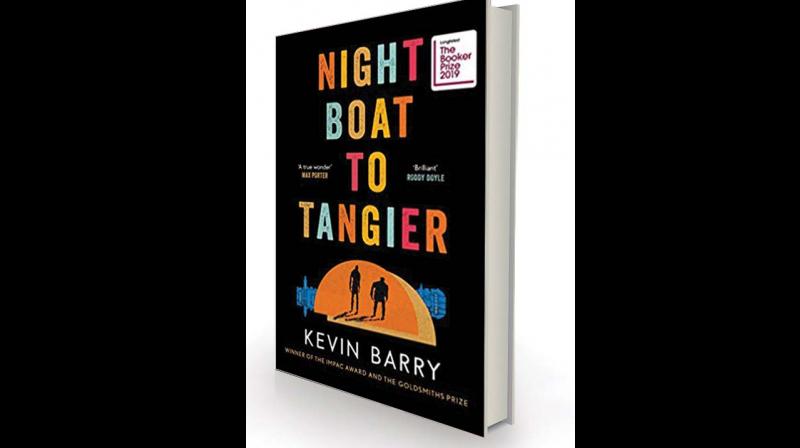Two men and a girl, and the beauty of melancholy

It lives in me still, the intense thrill when, as a child, I would listen to the Irish people around me converse. Some would express themselves in a personal language of grunts and clicks; others would be monosyllabically gnomic; and others would make of
English new and magical shapes. They’d enrapture the language (especially in oath and insult) and draw out its transformative potential.
I relive that thrill whenever I come across a new book by Kevin Barry. His words address the reward centre in the brain, the neural pathways that are enlivened by nicotine, alcohol or opioids. Reading him, I am given the feeling that I’ve achieved something, done something good and am being justly remunerated. The brain lights up and grins.
Night Boat to Tangier, longlisted for the Booker prize, begins in the Spanish port of Algeciras one October night in 2018. We are taken straight into a conversation between two men, Charlie and Maurice, and the opening line — “Would you say there’s any end in sight, Charlie?” — is perfectly chosen, expertly adroit. I get echoes of Paul Bowles, especially of Let It Come Down. Both books take us immediately into the souls of people churned by massive forces, both lay out for us the human microcosm, the pitiable individual. We learn, through a beautifully paced sequence of revelatory detonations, that Maurice and
Charlie are friends, coevals and former drug-dealers. Now, in far from settled middle age, they’re in search of “a small girl… a pretty girl. She’s 23 years of age by now. She’ll be dreadlock Rastafari”.
The question of who she is, and what her relationship to the two men is, slowly unfurls; what explosive discoveries await on the next page, what heartbreaks or ecstasies?
Past schemes, scams and escapades inform the eternal present; the future, when we get there, is present in what becomes our past. This is vital, given the supernatural thread that runs through the book —
the issue of predestination, of cyclical returns, of truths that might be eternal. There will forever be a spiritual dimension to unavoidable
suffering.
Maurice and Charlie are too endearing as characters, and too alluring, to truly test our empathy; nor are they the focal point — that would be the enigmatic girl. But the beauty of their interactions and histories make this novel utterly compelling.
This book has been longlisted for the Booker Prize 2019. By arrangement with the Spectator.

